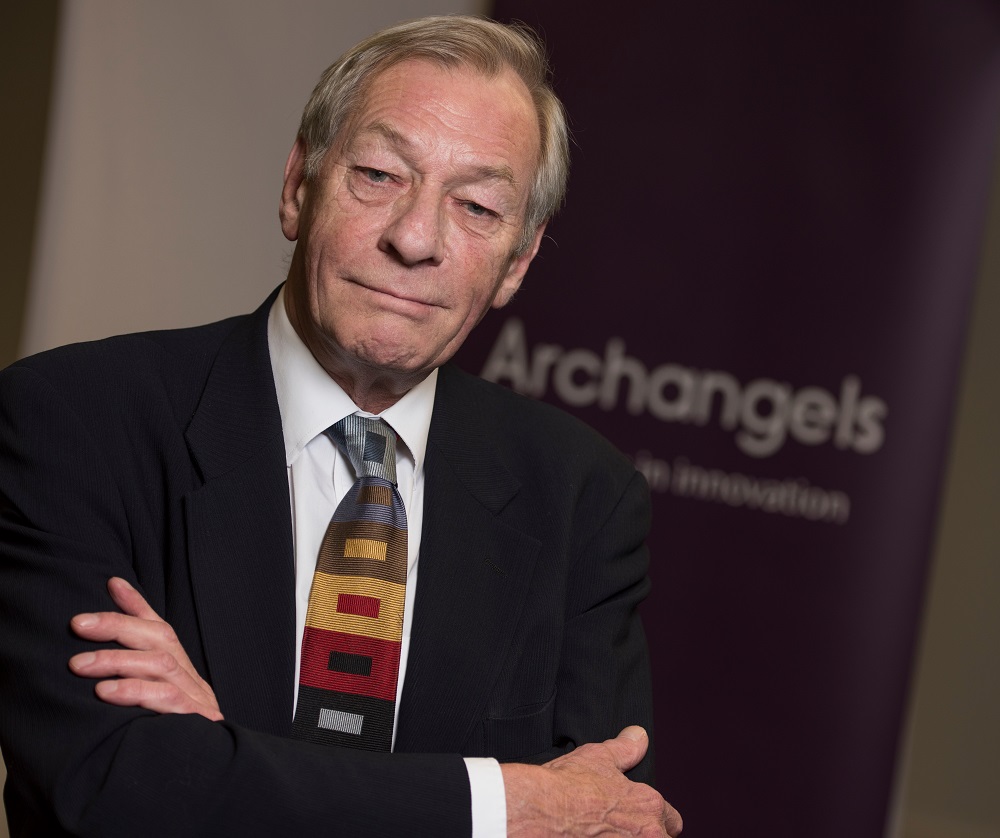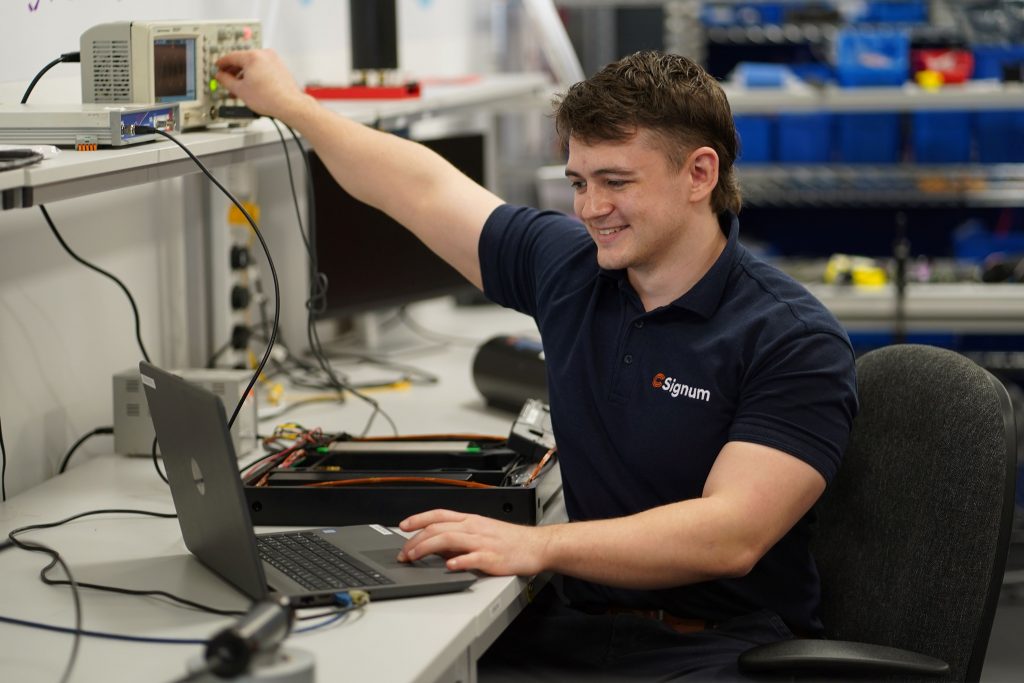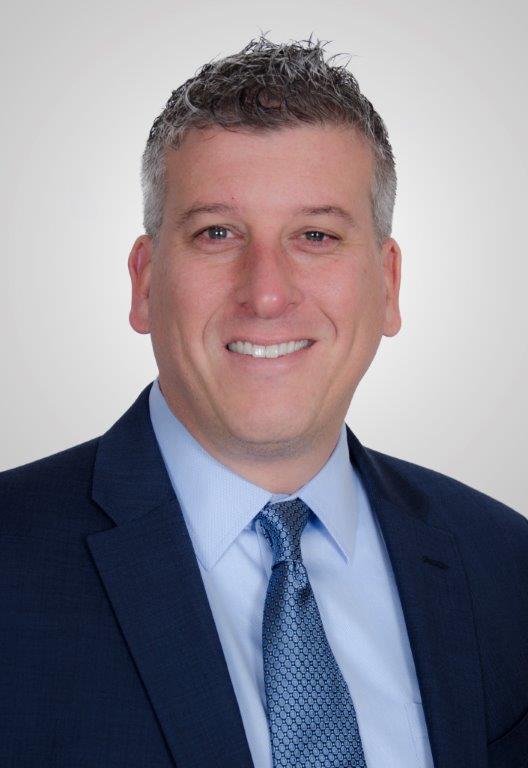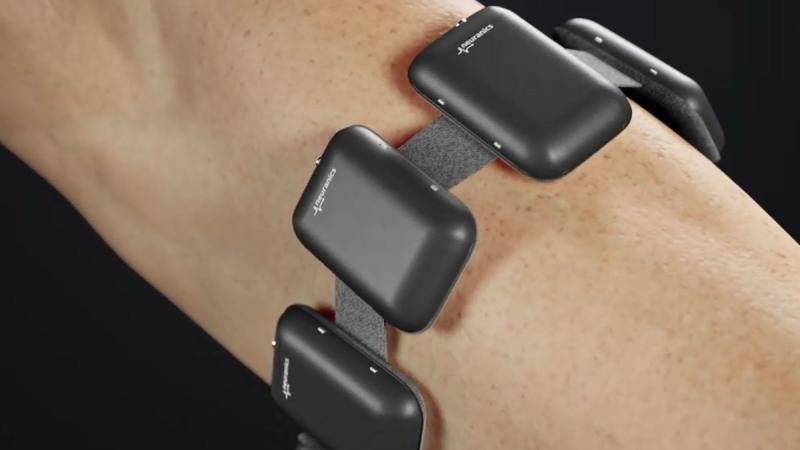Mike Rutterford helped launch Archangel 28 years ago and, driven by its four pillars of wisdom, the business angel syndicate has delivered success stories, cash – and fun
By Emma Newlands | Scotland on Sunday
Mike Rutterford is the co-founder of Edinburgh-based business angel syndicate Archangels, which says it has been at the forefront of early-stage investing in Scotland for more than a quarter of a century. The serial entrepreneur in his 20s launched estate agent Stuart Wyse Ogilivie, selling it to General Accident in 1987.
He co-founded Archangels with Barry Sealey in 1992. Today, it comprises more than 90 investor members and typically co-ordinates the investment of more than £15 million a year in early-stage Scottish companies. In 2010, he received an honorary doctorate in business administration from Edinburgh Napier University.
You co-founded Archangels in 1992, coming up with four pillars on which to build the organisation. Can you explain more about this, and why you decided to create the investment group?
Barry and I kind of danced around the handbags for a while in terms of actually getting together. But eventually he invited me to see him at his office. I think the meeting lasted no more than an hour but there was a meeting of minds in that first hour that was to last, as a partnership, for 28 years. It was about: we’ve got a few bob in the bank, how should we deploy that and what objectives might we have?
We both believed that we had done well out of Scotland and wanted to put something back. The second idea was that the way we would do that would be to invest in young Scottish technology. The third was that we felt we wanted to have fun in what we were doing. And the fourth thing, to make sure that it wasn’t altruistic, was that we wanted to make a bundle of money. As I always say, that’s the only way to keep the score.
So that was knocked together in the first hour. We didn’t set out to create a business angel movement. In fact, at that time the phrase business angel was unknown. The word entrepreneur, which appears about three times in every sentence these days, wasn’t in common currency the way it is today.
The four pillars that we set out in the beginning have been revisited over a number of years and I think they’ve stood us in really good stead when we’ve needed something to navigate by. They’ve been our North Star if you will.
Back in the early days, building the businesses was the be all and end all and it only emerged gradually that we could actually do very well out of this. We were blessed by the first three deals we did, which were Douglas Anderson’s Optos; Solcom Systems; and Objective Software Technology (OST). OST was the first business we exited. Solcom Systems was an even bigger winner when we sold our stake there.
So, we had some massive successes in the early years, and I guess there was probably a false sense of security there, that this was not so difficult. Let’s be clear, our due diligence was scant to say the least. We did make some ill-considered investments where we just liked the person. Nowadays the quality of due diligence is light years ahead of what it used to be.
So, we had quite a lot of investments that we lost our money on, but what we did learn was that when it became clear that a business didn’t have a market or there was no vibrant legs on it, to withdraw quickly. We would probably just give the business back to the founder and say: “sorry, but it’s not for us”. So, there were bitter lessons learnt.
Overall, 48 per cent of our companies have gone on to fail, but we have lost only 19 per cent of our total investment on these companies. So, we’ve learnt serious lessons over these 28 years in calling it quick – if you can! If you keep going despite your gut feeling, it’s the walking dead. And that’s painful.
How had your career progressed before that?
I was in the merchant navy as a deck officer for six years, working for a company called Ben Line, sailing out to the Far East. It was the University of Life – don’t ask me any more. It was the ‘60s and I was sailing to places like Thailand.
My ship got involved in the Six-Day War in the Middle East in June ’67 and we went into Port Said in north eastern Egypt about an hour after the war started, so that was interesting.
In 1969 I was engaged to June and I got a job offer which was going to pay me a bundle of money but I had to sign up for a year. June smelt a bit of a rat when I said I got a tin hat and a flak jacket “for safety purposes”. When I told her the job was to be captaining a tug in the Mekong Delta in Vietnam, she said: “NO”.
I came ashore and joined a life insurance company, and later started my own insurance broking business in Edinburgh arranging mortgages and investment plans. Eventually people whom I had help buy their house asked me if I would sell their house for them. I didn’t know anything about selling houses but I was persuaded to sell a few and I thought wow, this is not difficult, and it’s well paid.
So that fathered Stuart Wyse Ogilvie which I started in 1977 with about £6,000. I planned to call the business Pentland Properties, but after being scolded by a colleague for not being ambitious enough, June and I sat down that night with the births, deaths and marriages sections of the Scotsman and the Evening News and the phone directory and came up with the name.
Stuart, from the Royal Stuart; Wyse, being canny with money; and Ogilvie, after Sir Angus Ogilvie who was a prominent businessman at the time. I thought the name created credibility and so we were off.
I sold the business in ’87 to General Accident for a lot more than the £6,000 I had invested at the start. That’s what provided my base of money, a couple of years after, to start what was to become Archangels with Barry, who had done well from his time at Christian Salvesen.
You have previously said that as the financial crash unfolded, Archangels made very few investments in new deals, instead concentrating on existing investments. Will you take the same approach due to Covid-19 – or is it too early to say?
At the time of the financial crash, we weren’t purposely turning away deals, but that was the perception and it took us a while to get the wheels turning again. So, we’re conscious that we don’t want to turn the tap off while we go through the current crisis.
We are most definitely still interested in hearing from aspiring tech, engineering, opto-electronics and life science businesses who have an idea that they believe they can bring to life and for which there’s a market. In fact today we have a conference call with just such a company and if it turns out that they have the magic sauce, that would be amazing. There are three or four companies that we’re currently engaged with that are looking quite interesting.
How do expect the pandemic to affect your portfolio companies? Archangels has called for the Scottish Government to do more to protect early-stage tech firms, for example.
I have to say our existing portfolio companies stepped up to the plate quickly as soon as it became clear there was going to be an impact on demand and supply chains. They have all faced up to the actions that needed to be taken to be resilient through this and they’ve taken cold showers and sanity checks with their forecasts to ensure they’re as realistic as possible.
I think it’s testament to the quality of the boards and the management teams at all of our companies that the demand on investors’ cash due to Covid-19, at least in the short term, has not been high.
The current crisis highlights the importance of investing in innovation. Many people are sitting in front of their laptops having video calls as they work hard to keep their organisations operating. Zoom and Microsoft Teams didn’t exist ten years ago but the ability of people to work from home and to collaborate is down to investment in innovation. The ability to respond to the whole health crisis is down to the investment in the next generation of therapeutics and medical technology to allow you to test and analyse.
So, what it does highlight is that investing in innovation is so important. When the recovery does come, people are going to want to invest in the companies that are answering the questions that this pandemic is posing and I think a lot of our portfolio companies provide the answers to many of those questions. If you look at Optoscribe, for example, they’re enabling greater bandwidth for data centres.
Administrate, from their offices in Scotland, USA and the Middle East, are allowing big corporates to manage training and the delivery of that content remotely online. So, I think we’re well-placed for a lot of the companies to do well when we come out of this. Meanwhile another of our companies, BDD, is making facilities available to the health authorities for testing and laboratory work.
Our companies, and the likes of them, are the future. It’s the young companies with amazingly smart ideas that create high value jobs while disrupting the status quo. These small businesses are the future of our country and our world.
What is it you are looking for in a company seeking investment? How much has this changed over the years?
We’re looking for companies in tech and life sciences with intellectual property that can be protected. But before all that, we have to believe in the people and their idea and, critically, be able to work with them. We don’t make investment decisions based on whether we like them, but most of them I do actually. I would never in a month of Sundays have had this network of fascinating, inspirational people had we not stumbled into creating Archangels.
One of the biggest changes we’ve seen in recent years is the ability of data to make huge advances. If you look across our portfolio you can see companies such as Speech Graphics and NC Tech who, from Scotland, are carving out world class positions.
The group has said it is keen to welcome new investors – are you looking to diversify this side of Archangels?
We’re always interested in new members joining us, and we’re now at well over 100. Essentially, if our four pillars square with their own principles, then there’s a meeting of minds. But obviously you need to have deep pockets.
You’re not going to bet the farm on these deals but rather you view them as a useful addition to your investment portfolio. Whereas if you have an insular view of life then it’s not going to be for you.
What you get out of it is: a lot of fun; sometimes heartache when a company fails and people lose their jobs; but generally there’s the opportunity to engage with successful young companies and watch them grow; and hopefully the chance to make some money in the process.
What has been most challenging – is it investing in a business that failed, or failing to invest early enough in a successful business?
When we were probably about five years down the line, this guy called David Wolstencroft, whose younger brother was a school chum of my son Danny and was a very smart and personable guy, called me up to say he had a business idea that he thought we might like. So, he came to see me and he told me about this concept he had for a TV series.
Now, Archangels has always been about much more than just the cash. We have to know we can assist the company, either by what we know or what connections we can make for them. Barry calls it “smart money”. I just said that I was sorry to have to turn him down but we had nothing to contribute to a concept like this other than just cash. So, he took it to the BBC and created the TV series, Spooks. Some you win, some you lose.
Some businesses that we invest in don’t make it – that’s part of the world we’re in. And I believe strongly that if you don’t have any failures then you’re not taking enough risks. The trick is to have them fail quickly, before you invest too much.
If we look to the 30th anniversary of Archangels in 2022, what would you like it to look like then, and have achieved?
Not turning into a fund. Sticking to our knitting. Just keep doing the things we’re doing and doing them well, with sensitivity and humanity. The current model, much improved, polished, honed and refined from the stumbling start that Barry and I had, has grown to become a good business model.
It’s a marathon not a sprint and on average the companies we invest in will need about five rounds of investment and will take ten years to reach maturity. But we know that and we’re in it for the long haul. We are, and I hope we always will be, patient investors.
I look back with great pride at the achievements of our companies. Optos, has saved people’s sight and, in some cases, lives. Reactec, whose HAVwear product enables workers to avoid Vibration White Finger, a massively debilitating disease that’s irreversible and stops sufferers from even tying their own shoelaces. Touch Bionics – the world’s first bionic hand, invented in Edinburgh. That truly changed people’s lives and is still doing so today.
And to measure success in numbers alone, I’m proud too of the fact that we’ve managed investment of £278.7 million in Scottish companies, creating over 4,000 high value jobs along the way and generating £1.3 billion of gross value add for the Scottish economy in the process.






